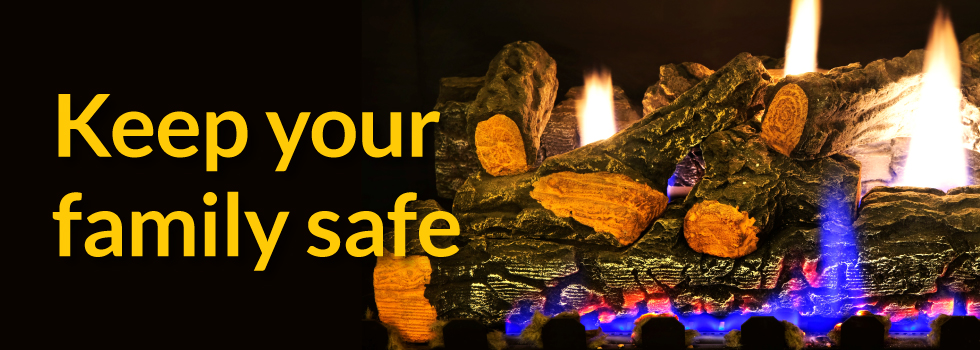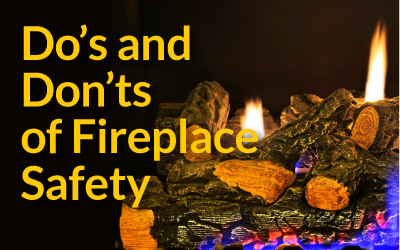
Gas fireplaces are far safer than their wood-burning counterparts—no matches, no smoke, no sparks, no backdrafts, no soot — but that doesn’t mean owners should ignore basic precautions. Here are a few things you can do to minimize the dangers posed by even the safest natural gas fireplace.
DO
- Inspect annually. Have a licensed gas technician or hearth dealer inspect your gas fireplace annually. He or she will check the gas lines, clean the burner and control compartment, and check for condensation. This is an important yearly appointment that shouldn’t be skipped.
- Install carbon monoxide detectors. Install carbon monoxide detectors on every floor of your house, and change batteries twice a year.
- Open the damper. Be sure your damper (the device that regulates the draft of air) is always open when a vented fireplace is in use.
- Follow the 3-foot rule. Gas fireplaces can get very hot and may ignite nearby objects. Keep newspapers, books, blankets, curtains, rugs, furniture and other flammable objects at least 3 feet away while you enjoy the warmth of the fire.
- Leave, if a leak is suspected. If you smell a “rotten egg” odor and suspect a gas leak, leave the house. Call Atlanta Gas Light at 877.427.4321 or 911 once you are away from the area and in a safe place. Stay away until Atlanta Gas Light or emergency personnel indicate it is safe to return.
DON’T
- Burn unsupervised. Never burn a fire without someone there to watch it. A single stray ember or spark could ignite nearby items.
- Touch. The surfaces surrounding the fireplace retain heat and shouldn’t be touched while in use. After turning it off, wait at least 30 to 60 minutes before attempting to touch or clean the fireplace.
- Allow children or pets near. Even though glass panels and safety screens stop little hands and paws from making contact with the fire, kids and pets shouldn’t be left alone around gas fireplaces. Establish a “no-play zone” of at least 1 to 2 feet in front of the fireplace or put up a safety gate. It’s also smart to keep your gas fireplace remote hidden and out of reach.
- Ignore warning signs. If your gas fireplace doesn’t light or heat, or there is a change in the appearance in flames or odor, discontinue use and have it checked out by a professional.
Walton Gas reminds you to know and abide by these rules to keep your family safe and your fireplace operating efficiently.
